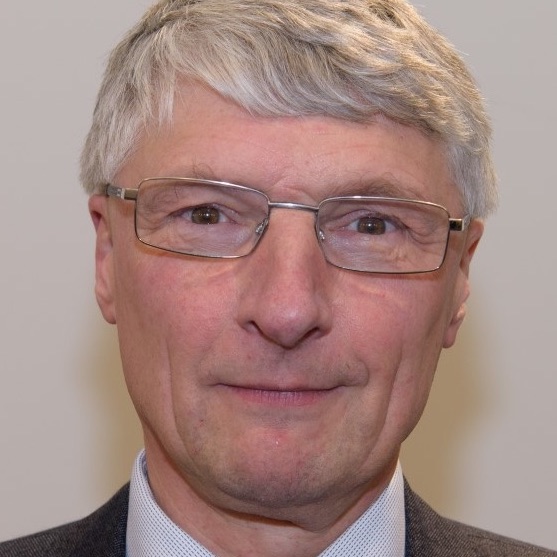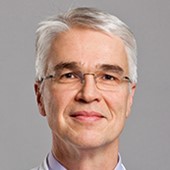


Gene Therapy Research in Hemophilia:
Liver Health and Patient Preparation;
Experience from Clinical Trials
ISTH 2021 Satellite Symposium
Monday 19 July 2021, 12:30 – 13:30 EDT
Add to calendar

Professor Flora Peyvandi
Professor of Internal Medicine, University of Milan
Flora Peyvandi (flora.peyvandi@unimi.it) is professor of Internal Medicine at the University of Milan, Italy. She is the Director of the Angelo Bianchi Bonomi, Hemophilia and Thrombosis Center at the Internal Medicine – Hemostasis and Thrombosis Unit of the IRCCS Maggiore Hospital and Director of Milan, Italy.
Read More
Flora Peyvandi (flora.peyvandi@unimi.it) is professor of Internal Medicine at the University of Milan, Italy. She is the Director of the Angelo Bianchi Bonomi, Hemophilia and Thrombosis Center at the Internal Medicine – Hemostasis and Thrombosis Unit of the IRCCS Maggiore Hospital and Director of Milan, Italy.
As witnessed by her numerous publications and by the funding obtained by different sources, both governmental and private, Prof. Peyvandi has been dedicated to continuing to bring state-of-the-art treatments and technologies to her research program and to offer patients the most novel therapeutic approaches available. Her research has been focused on the investigation of molecular mechanisms of coagulation disorders and on the immunogenicity of coagulation products. Her additional research work is focused on the prevalence and mechanism of coagulation disorders aims at developing cost-effective treatment for the widespread treatment of patients.
For many years, Prof. Peyvandi has been participating in clinical, educational and research activities of different scientific societies and patient organizations, such as ISTH, EAHAD, WFH and EHC. Her clinical, teaching and research experience combined with her life in different countries has familiarised her with patient management, scientific projects and educational systems of different parts of the world.

Professor Graham Foster
Professor of Hepatology, Queen Mary University of London
Professor Graham Foster is Professor of Hepatology at Queen Mary University of London and the clinical lead for hepatology at Barts Health.
Read More
Professor Graham Foster is Professor of Hepatology at Queen Mary University of London and the clinical lead for hepatology at Barts Health.
He trained in Medicine at Oxford and London Universities in the 1980s and completed a PhD in Molecular Biology in 1992. Professor Foster is a past President of BASL, NHSE Clinical Lead for Hepatitis C, Chairman the NHSE Hepatolbiliary Specialised Commissioning Clinical Reference Group and the founding President of The British Viral Hepatitis Group.
He has a long-standing interest in the management of chronic viral hepatitis and runs a clinical research program studying the natural history of viral hepatitis, its impact upon patients and their communities and novel therapies for this disease. He supervises a laboratory research program investigating the basic virology of hepatotropic viruses novel replication models for hepatitis C. He is the editor of The Journal of Viral Hepatitis and has published widely in the field of viral liver disease.

Professor Wolfgang Miesbach
Head of the Department of Coagulation Disorders and the Comprehensive Care Hemophilia Centre, Goethe University Hospital
Professor Wolfgang Miesbach is the Head of the Department of Coagulation Disorders and the Comprehensive Care Hemophilia Centre at the Goethe University Hospital in Frankfurt/Main, Germany. He is a Member of National and International Scientific Societies and he is on the Editorial Board of several scientific journals.
Read More
Professor Wolfgang Miesbach is the Head of the Department of Coagulation Disorders and the Comprehensive Care Hemophilia Centre at the Goethe University Hospital in Frankfurt/Main, Germany. He is a Member of National and International Scientific Societies and he is on the Editorial Board of several scientific journals.
His main research interest is in the field of quality of life investigations, elderly patients with hemophilia and von Willebrand disease, and new treatment options of hemophilia.